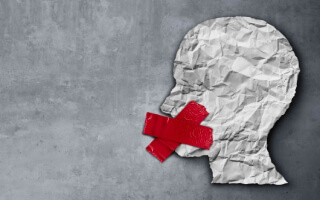Gambling has always walked the line between thrill and ruin, glamour and grit. For decades, film and television have treated that razor’s edge like a stage—one where risk-takers become heroes or cautionary tales. From back-alley poker dens to neon-lit casinos, pop culture hasn’t just shown us the world of gambling. It’s helped shape how we feel about it.
This isn’t just about blackjack and roulette wheels. It’s about what those games mean when they show up onscreen—who’s playing, what’s at stake, and what it says about luck, control, and human nature.
How Gambling Became a Pop Culture Staple

For a start, gambling has been always viewed as balancing the exciting with the dangerous, the glamorous versus the gritty. The theme has always made it to the film and TV screen and has always had gamblers starring as heroes. The toughest among them have become the warnings. Out in the pop culture, gambling has also been portrayed to be something influencing what one thinks of gambling.
More is it that is cloaked in the pop-cultural image of gambling than poker, blackjack, or roulette. What the scenes show is a revelation about other known risks, the stakes, luck, and control, as well as about the human nature element.
The Gambler as Antihero
You know the type. The brooding genius who walks into a casino like he owns it. Cigarette smoke curling in the air. A face carved out of stress and charm. Pop culture has a soft spot for these gamblers—not because they always win, but because they play like their life depends on it.
Take Rounders (1998). Matt Damon’s character isn’t just playing poker—he’s trying to outplay fate, clawing his way out of bad choices and worse debts. Or Casino Royale (2006), where Bond’s poker table becomes an arena of espionage and icy nerves. The table isn’t just a prop. It’s where control is tested.
There’s something magnetic about these portrayals. They feed the idea that gambling, done right, is a talent. That it rewards courage, cleverness, and a little bit of madness. But it also flirts with danger. The house never forgets, even when the camera cuts away.
Casinos on Screen – The Mirage of Glamour

Hollywood loves a casino. The lights, the music, the soft clatter of chips—it’s cinematic gold. Films like Ocean’s Eleven and 21 portray gambling as a slick, high-stakes game for the cool and cunning. These aren’t real casinos; they’re daydreams in tailored suits.
It’s easy to see why these stories work. The rules are simple, but the risks feel infinite. One bad hand, and it’s all gone. One clever bluff, and you walk away with millions. It’s the illusion of control that makes it so watchable.
But here’s the catch: most people don’t leave the table as winners. Real casinos are built on losses. The glitz is there for a reason. It keeps you playing. And most of the time, pop culture politely skips that part.
TV’s Slow Burn – Addiction, Consequence, and Realism
Television, with its long arcs and deeper character work, tends to strip the sheen off. In shows like The Sopranos, Breaking Bad, or Ozark, gambling isn’t a flashy side plot—it’s a symptom. A slow unraveling.
These stories show the damage: the debts, the lies, the desperation. In The Sopranos, gambling isn’t about luck—it’s about control, or lack thereof. Even when a win comes, it doesn’t fix anything. It just buys time. A reprieve before the next spiral.
The realism hits harder on TV. You see the aftermath. The late-night bets, the broken families, the phone calls from collectors. Gambling in this format is rarely heroic—it’s human, messy, and often tragic.
Sports Betting and the Quiet Normalisation
In recent years, betting has started blending into the background. Especially sports betting. You don’t need a shady bookie anymore—just an app and a credit card. Pop culture reflects that shift, almost too casually.
In series like Ballers or Billions, gambling isn’t scandalous. It’s just part of the world. A side hustle for the rich and restless. Even in mainstream sports broadcasts, ads for betting platforms are everywhere. Odds crawl along the bottom of the screen like weather updates.
That casual tone is what makes it powerful. It tells audiences that gambling is just… part of life now. Something everyone’s doing. No big deal. But that, in itself, might be the most dangerous portrayal of all.
Women and the Changing Face of the Gambler

For years, the world of cinematic gambling was overwhelmingly male—men betting big, losing bigger, and sulking into the night. But the narrative’s starting to shift.
Molly’s Game (2017) is a standout. Based on the true story of Molly Bloom, it tells how one woman ran a secret high-stakes poker empire for the elite. She’s brilliant, relentless, and very much in control—until the FBI shows up. Her story isn’t about chasing fortune. It’s about surviving it.
These newer portrayals are more than just representation. They’re a necessary shake-up. They remind us that gambling culture isn’t owned by any one group—and that its dangers, and allure, cross every line.
Media Influence and the Role of Responsibility

As betting becomes more visible—and more accessible—there’s been growing concern over how it’s presented. Regulatory bodies have started clamping down on gambling ads, especially those targeting young people or using celebrities to promote platforms.
But films and shows operate in a grey area. They’re not ads, so they don’t have to follow the same rules. Still, they influence perception. Sometimes more than any billboard could.
The question isn’t whether pop culture should show gambling. It’s whether it should do so without context. Without showing the quiet, less cinematic side of things—the one where people lose homes, families, and decades to a habit they can’t shake.
Closing Thoughts
Gambling in pop culture is rarely just about money. It’s about tension, identity, power, and the illusion of control. It’s about what people are willing to risk—and what they’re afraid to lose. Films and TV keep returning to it for a reason. The stakes are always personal.
But as the lines between fiction and real life blur—especially with apps and instant betting—it’s worth questioning what these stories leave out. The drama is real. The glamour is not. And sometimes, the greatest trick isn’t in the cards, but in the way we’re told to watch the game.
Read Articles

How Cancel Culture Shapes Social Norms in Modern Society
You’ve witnessed it many times—the fall from grace of a celebrity, caused by an incorrect slip of the tongue, and often followed by a discussion that escalates into online arguments no one can escape. It happens suddenly on a single, tragic tweet or through a few missteps, and then lingers for weeks, months, even years. What is clear is that the way we communicate and hold each other accountable is rapidly changing. These transformations are intertwined with a deeper examination of two related yet distinct concepts: political correctness and cancel culture.
Read More
The Impact of Digital Trends on Today’s Youth
All teenagers are into social media traps now, something that grows on them, comes their second cup of coffee. Among the most popular names, there are Instagram, TikTok, Snapchat, and daughters behind YouTube. So less to talk about businesses there-aren’t fun places to keep in touch with-young people share themselves, make friends, and indulge in many things that are happening around them. These places in the digital world provide spaces where youth review themselves, share the ups and downs of life, and figure out what the world means.
Read More